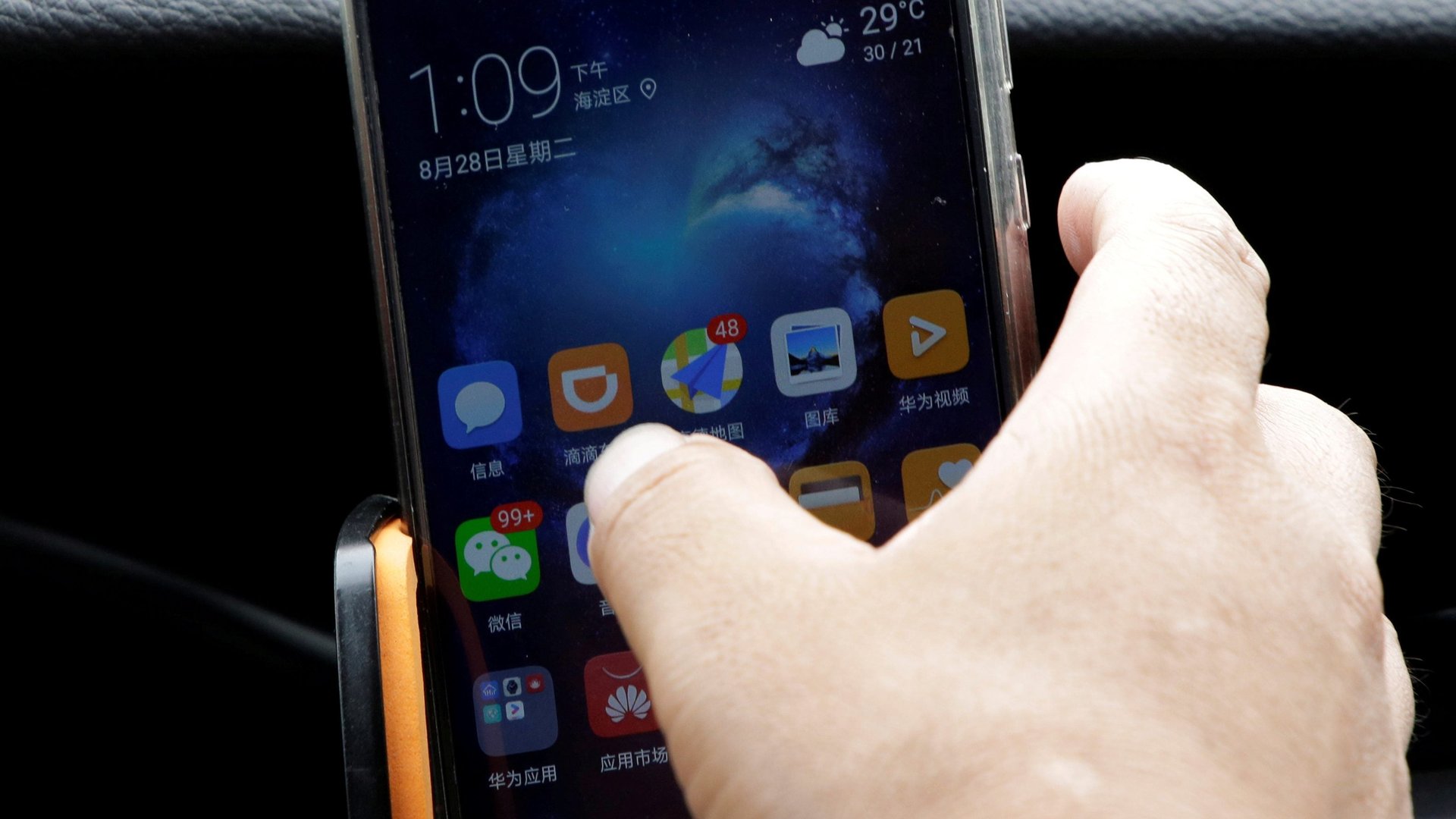China’s ride-hailing giant Didi is welcoming its competitors to its app
Ride-hailing giant Didi Chuxing is welcoming three major Chinese car manufacturers to its platform, a move that could help develop its own future rivals.


Ride-hailing giant Didi Chuxing is welcoming three major Chinese car manufacturers to its platform, a move that could help develop its own future rivals.
Didi, which has some 550 million registered users in China, announced this week (July 15) that passengers will soon be able to order services provided by newcomers to the ride-share industry, including Guangzhou Automobile Group (GAC), First Automobile Works Group (FAW), and Dongfeng Motor (DFM) on Didi’s app. The services are expected to be available by the last quarter of the year.
Didi said opening up its platform would help “automotive partners build capacities for connected vehicle operations.”
The partnership comes as Didi, which has dominated the ride-hailing sector since a 2016 deal that saw rival Uber depart China, faces new competition. That’s coming both from internet giants like Tencent-backed delivery app Meituan Dianping and Alibaba-backed mapping service Gaode, as well as from traditional carmakers that have launched ride-hailing services as car sales decline.
Meituan’s daily ride orders are at about half a million and Gaode picks up around 700,000 daily rides, compared to Didi’s 24 million, according to local news outlet Sohu (link in Chinese).
While Didi still takes about 90% of all ride-hailing bookings, a series of safety debacles have led to widespread user complaints and pleas for alternatives to the “Didi monopoly,” as many users have put it. Didi last year had to shut down Hitch, one of its most significant profit drivers, after two female passengers were murdered while using that service.
Didi’s learning from Meituan, which opened its platform to three ride-sharing companies in April. Meituan now allows passengers to book services provided by Beijing-based rental companies Shouqi Limousine & Chauffeur, CAR, and Geely-owned Caocao Chuxing on its app. Gaode has also had a similar approach since 2017 (some links in Chinese).
GAC, FAW, and DFM rank among China’s top five car makers by sales, and are also major manufacturers of electric passenger cars—which Beijing wants to see more widely used in ride-sharing. GAC announced its ride-hailing foray with Tencent, a major Didi backer, earlier this year. It plans to use electric cars, and scale up to 10,000 vehicles within a year of starting operations.
But the move could also put Didi at risk by allowing carmakers to grow their own ride-sharing services with Didi’s user base and drivers.
Didi relies on multiple rental companies to recruit drivers, which has made it hard for it to lower costs because the rental companies need to recover the cost of purchasing cars and training drivers from Didi.
Traditional carmakers make their own cars, giving them direct control of the cost of their fleets, and more leverage to adjust the cost per ride compared to Didi, Wu Tianbin, CEO of car-rental business Yangguang Chuxing told tech publication QQ Tech (link in Chinese).